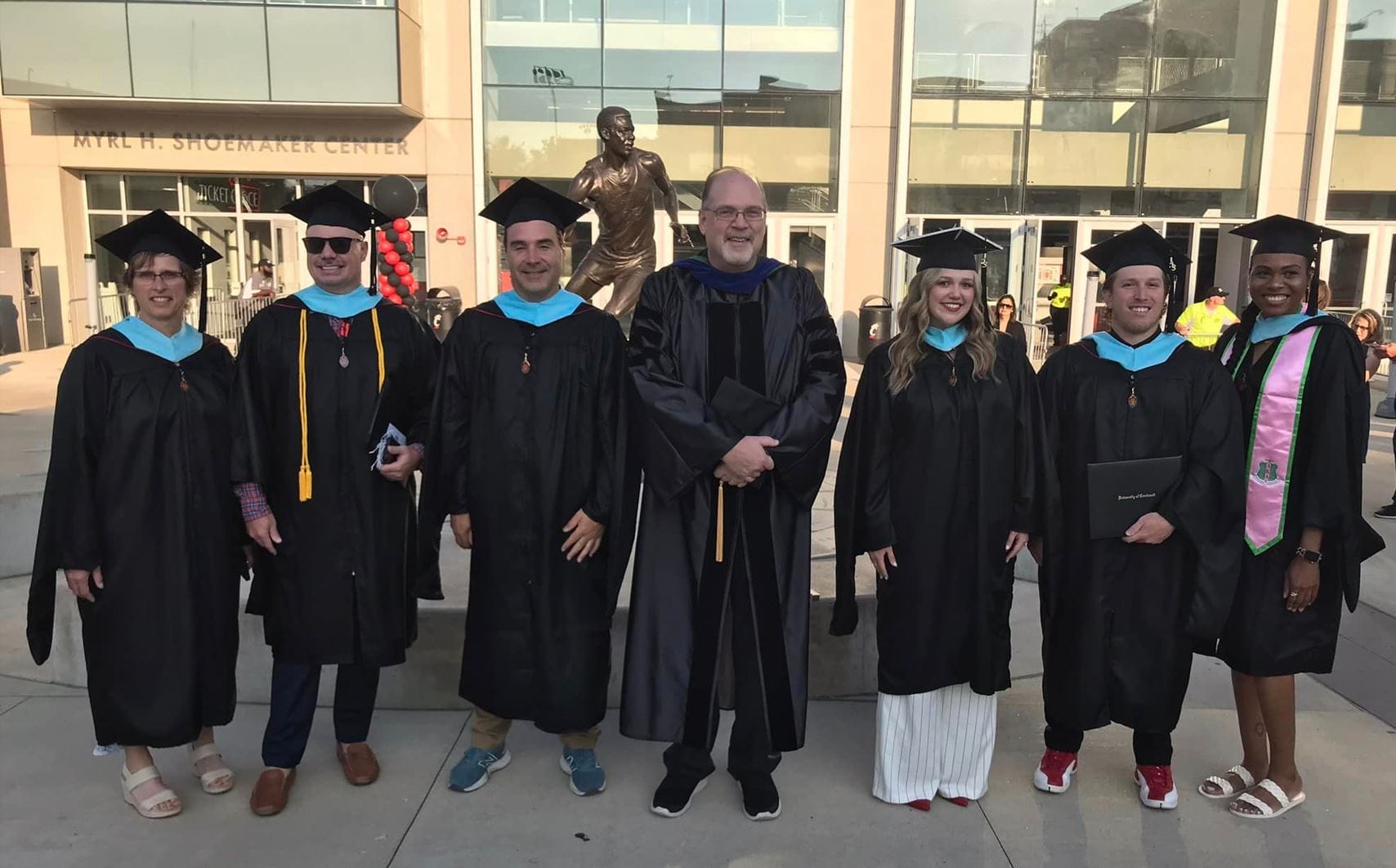SPAD Alumni Spotlight: Josh Weirich

Sport Administration Alumni Discusses Success With UC Faculty
University of Cincinnati's own Dr. David Kelley sat down recently with Josh Weirich, a SPAD alum about his experience in (and outside) of our Master's in Sport Administration program. David: What were you like in High School and what sports did you participate in? Josh: “I grew up in a small-town in northeast Ohio. I played football and baseball growing up. My hometown was one of those towns where almost every boy played football. So that was definitely the big sport. In fact, at the local hospital there, when you're born, you get a little orange and black football in the crib and so I think that probably tells you everything you need to know.” David: Within this realm of intercollegiate athletics, who have been your role models? Josh: “I had this conversation with someone the other day! In fact, dating all the way back to 2005 when I started out, my career was at a boutique marketing firm that I worked for at the time, they had the rights to head Coach Jim Tressel’s website. At the time, my boss and my mentor, who is still one of my mentors to this day was a gentleman by the name of Ryan Miller. Ryan was a former Ohio State University football player. He went into media for a while where he did TV and radio, and then went back to Ohio State, got his MBA degree and started his own marketing firm. This was at a time when football coach Frank Beamer at Virginia Tech was the only coach to have his own personal website. So, we all jumped in the car, drove to Blacksburg Virginia, met with coach Beamer and his people and kind of found out how they did his website there and took a bunch of notes. We came back to Columbus and went to work and launched the Coach Tressel website. I did everything from producing content to interviewing, to photography, to creating a sales inventory and then we started to gravitate towards creating some experiential events based off if you were a member of the website. We got to take folks to full practice. So overall, Ryan Miller, 100% is still somebody that’s been really important to me.” David: Here at University of Cincinnati while you were in graduate school, you multitasked as both the senior business development manager with Bearcat sports properties, and as a master's student. So, what was that like, in terms of having to balance the demands of being both a master's level student and your full-time job? What were some things you learned about yourself in that process? Josh: “Great question! There was so much going on at the time that I didn't even have a chance to take a step back and realize how much I was actually doing from a professional standpoint. As it relates to my work as a student, once I got comfortable with the class work again and realized what kind of time commitment that I was going to need in order to give and what I was going to have to set aside, I really just banged it out every day. I was like, all right, this is what I have to get done this week and that included a lot of Sundays. From a grad student standpoint, doing work especially during the different seasons, being at UC and working very heavily during every home basketball game and every home football game, but from a business development standpoint, at the peak of my student career, I had the best year I've had in 7 years at UC. So, I think it just made me sharper and made me more focused on the professional side because I knew I was going to have to focus more. The asynchronous online classes for me, for not only the time, but for the way I learn was a game changer, and I couldn't imagine doing it another way. Maybe I wouldn't have done it if I had to show up somewhere 3 nights a week. Honestly, from an online standpoint, I know that if I can do that while working full time, I think that that almost anybody could do it. For example, my schedule changes from day to day and sometimes from hour to hour, I get pulled into meetings from game operations to marketing, and all sorts of different things, so like to be able to commit to something, especially during the week, for multiple hours at a time outside of my job would have been really probably not feasible. But then the asynchronous style and just being able to absorb the information in the way that I felt the most comfortable, spending as much time as I needed reading, sometimes rereading things to understand them a second time. And then, utilizing some group work and leaning on some other people and being able to enlist some trust in other people to do work that your names going be attached to, that's hard for some people. I think initially, I wanted to do every group project myself, and then I just realized that that wasn't going to be feasible; you need to let a little bit go. These people are doing the same thing that you are and they're getting something out of it as well. So, you need to trust those around you from a group standpoint. But I definitely learn better, on my own, at my own pace, but having the benefit of being able to reach out to any of the professors is great as well, because we did Zoom Meetings. We did group texts. You could hop on the phone. So, if you were stuck on something or just needed some clarification, that feedback was pretty instant and ultimately was awesome.”
